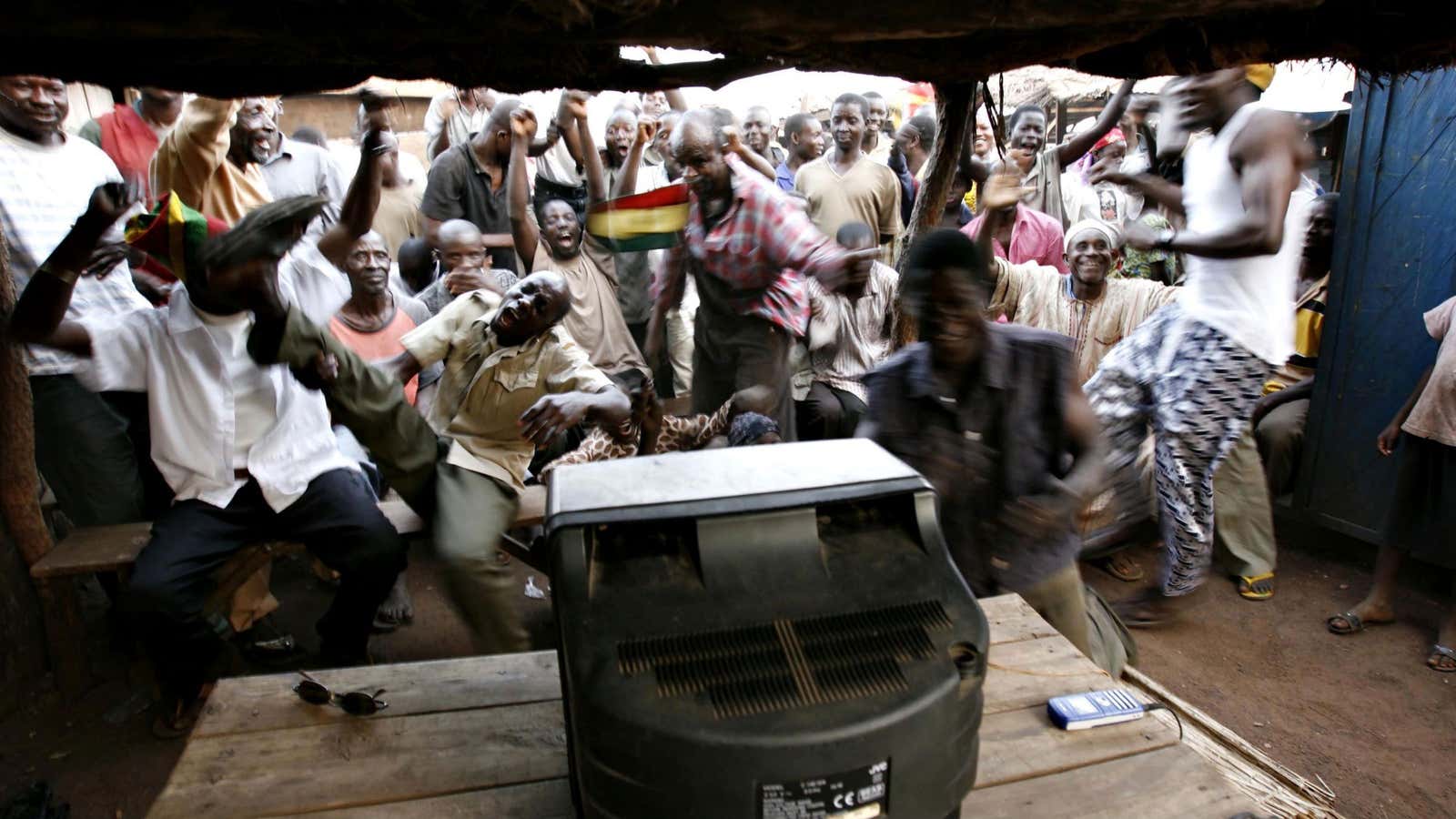The United States and Ghana are more or less evenly matched on the field. But plans to broadcast today’s World Cup match between the two nations show how far apart their economies remain.
When the teams kick off at 6pm in New York and 10pm in Accra, the most pressing concern for American soccer fans may be how to find the game online. In Ghana, the issue is whether there will be enough electricity to power everyone’s televisions.
Ghana has been suffering from a power shortage this year due to low water levels at hydroelectric dams on the Volta River. The nation’s utilities regulator is already rationing electricity by mandating sporadic shutdowns.
To ensure that World Cup viewing won’t be interrupted, Ghana is purchasing 50 megawatts of electricity from its neighbor, Ivory Coast. Power plants will also be running at maximum capacity, and Volta Aluminum, the nation’s largest smelter and a large drain on electricity, will slow production during the match.
“These plans are put in place for consumers to watch uninterruptible football matches during the World Cup,” the Public Utilities Regulatory Commission said.
Ghana derives most of its electricity from the Volta River, but that source has not generated enough to keep up with economic growth. Outages are common. Solar and wind power investments, though supported by the government, have yet to make a significant contribution to the nation’s energy supply. And attempts to exploit recent discoveries of natural gas reserves are beset by delays in constructing refineries.
The government’s effort to ensure power supply during the World Cup is a populist move clearly intended to head off frustration with energy policy that has favored large industry, such as aluminum smelters, at expense of reliability in homes. In a similar fashion, Thailand’s military junta forced the World Cup to be aired on free television as part of a “happiness campaign” to endear itself to the populace.
